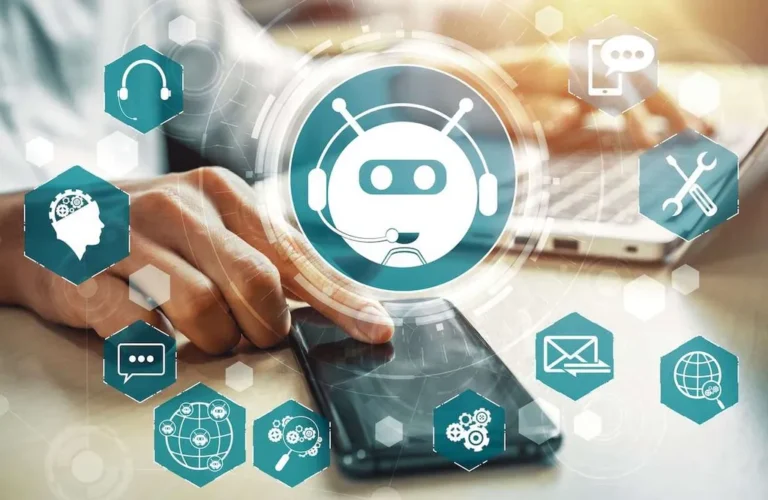Applying Artificial Intelligence To Automotive Marketing And Sales
Remember that this is a super-competitive, super-global, and super-low margin industry, and these massive tech corporations are not used to that. I kind of question, after I think about Apple, having an Apple automobile, not whether they might do it and do an excellent job at it, but whether or not they really need to be in that business. And even if they pull again to say, “We just need to do the software program,” even that could also be a huge problem and will pull them away from a lot of the other things that they’re doing. But whenever there’s a big, seen accident — the biggest one was the 2018 demise of a pedestrian wheeling a motorbike by an Uber automobile — which truly had a human operator there to keep an eye fixed on the autonomous car. Then abruptly you had a spike in people who stated, “I would never even get in and check out one of those benefits of ai in automotive industry.” It put a chill on many different aspects.

Be Taught More About Analytics Vidhya Privacy
According to Statista, the worldwide automotive intelligence market was sized at $26.forty nine billion in 2022 and it is expected to succeed in $74.5 billion by 2030.
- It is why Mercedes-Benz, Toyota, Volkswagen, Tesla, Volvo, Bosch, and many different massive industry gamers are proactively adopting AI know-how to enhance the shopper experience.
- Additionally, the inevitable shift from hardware to software program in the automotive industry requires vehicle producers to reimagine their workflows and pay shut consideration to the relevant regulatory frameworks.
- Moreover, any event of a collision in autonomous vehicles can spark questions on legal responsibility, seeking the responsible entity for the accident.
- If the lighting just isn’t good or the product is mounted just a bit off-center for inspection, the present methodology can yield false positives.
Challenges And Future Prospects
AI algorithms course of sensor information and combine it to detect objects and predict conduct, which helps make knowledgeable selections in real time. These techniques activate advanced driver assistance features, including adaptive cruise management and pedestrian detection, leading to an efficient driving experience. AI has garnered recognition for introducing self-driving automobiles to the world for all good causes.
Shoppers Have More Durable Time Finding The Right Automotive In October
In the meantime, synthetic intelligence (AI) has slowly begun to transform our automobiles through integrated innovations throughout automobile brands. AI is crucial in creating autonomous automobiles, enabling them to perceive their environment, make choices, and navigate without human intervention, which can significantly reduce accidents, increase mobility, and improve traffic flow. By offering gross sales teams with detailed buyer journey knowledge, AI allows extra efficient gross sales processes and improved conversion charges. This integration of AI into operational methods considerably lowers costs and enhances customer engagement, underscoring the technology’s pivotal role in optimizing automotive business models.

This deep level of perception ensures that clients receive presents and communications that are related to their specific needs and preferences, boosting satisfaction and loyalty. AI is redefining the driving expertise, allowing for personalization that reflects the driver’s preferences and way of life. Automotive giants, similar to Porsche, are pioneering the usage of “Recommendation Engines,” which recommend car configurations tailored to particular person tastes. This stage of customization underscores AI’s capability to make driving a more personalised and expressive experience. AI offers information about propensity to purchase, where the client has been purchasing on-line and for what autos, and even what automobile is presently in the customer’s garage.
These are some of the many use cases of AI in the car industry, considerably redefining the business with the potential to transform how automobiles are designed, developed, and driven. AI-enabled systems use sensors to assist with steering and pedestrian detection, monitor blind spots, and alert the motive force accordingly, enabling them to take preventive measures to stay protected against highway accidents. The purposes and benefits of AI within the automotive retail business are huge and extra roll out daily.
In addition, particular commands enable passengers to listen to their favourite music, order meals and do other participating activities while having fun with their journey on the highway. Dealers now have full access to AI-driven analytics tools to make data-based decisions to optimize efficiency and profitability throughout departments. Advanced analytics embody enterprisewide, detailed and configurable reviews with competitive benchmarks, aim management and AI-driven predictive forecasts — saving sellers time and preparing them for the future. The data annotation powered by synthetic intelligence makes it more accessible for the manufacturing trade to identify and work out the problems, nonetheless, minute or severe they could be.
From autonomous driving to enhanced safety options, AI functions in automotive trade are playing a pivotal function in reworking the industry, making it more efficient, sustainable, and customer-centric. The automotive sector stands as a leading investor in synthetic intelligence (AI), marking a major shift in direction of the future of the trade. By harnessing machine learning algorithms, automotive players are enhancing the standard of knowledge important for autonomous driving methods.
Poor interaction between such components ends in data silos, inconsistent data, and unreliable analyses. Improved fuel efficiencyAI-powered engineering helps optimize car aerodynamics and engine effectivity to scale back gas consumption and fuel emissions. As an rising tech development in the transportation sector, AI promises to make driving less tense and more secure and, on a bigger scale, facilitates logistics operations involving large fleets of vehicles. The way forward for the automotive trade might be decided by the tendencies and technologies which are being formed right now. The corporations that are doing the software for these vehicles, they don’t know from running fleets and repairing vehicles and coping with duty cycles and cleaning up after the final consumer, and stuff like this. We settle for much less error from automated methods than we do from humans because we really feel we sort of perceive the sources of human error.

As a end result, the AI tool effectively leverages information patterns to foretell buyer decisions. Today, Porsche AI’s recommendations are greater than 90% accurate, with accuracy enhancing with each use and information input. The company’s vehicles mix AI software program, sensors, real-time cameras and thousands of test miles, each digital and actual, to ensure safe decisions on the highway. AutoX has been deploying its robotaxi providers in China and in addition obtained a allow to launch a robotaxi pilot program in California. Similar to current transportation services like Uber or Lyft, a person would summon a Zoox car for a ride via an app on their smartphone. Similarly, a price seize governance framework and supporting incentives will help keep away from unnecessary costs for licenses and training.
With AI-powered chatbots, customized suggestions, and virtual assistants, automotive producers and dealerships can provide clients a more personal and efficient experience. External companions can present the necessary information and capabilities to maneuver shortly and in a focused way—though it’s necessary to hold up ownership of your knowledge and leverage your area data, a core supply of value. Working with a technology partner to plan AI initiatives may help guarantee these concerns are accounted for and that funding street maps align enterprise needs and current infrastructure with right-fit AI-based options for greater return. AI use circumstances in automotive will continue to harness data to add extra value to drivers, automobiles, and their manufacturing processes, resulting in future-forward developments for people and the business. The speedy enlargement in technological capabilities is driving progressive use cases and, with it, shopper and trade expectations. Maintaining the standard of autos is the prime concern of an car owner to maintain a higher customer count.
Current regulatory frameworks impose significant limitations on the collection of this info. AI mannequin reliability could be hindered by overfitting (a mannequin overtrained on a selected information set performs poorly when processing different data) or mannequin drift (its efficiency degrades over time due to progressive adjustments in input variables). Superior product qualityAI techniques can determine floor vehicle defects and other issues with utmost precision to ensure compliance with quality requirements. Conversational AI is an increasingly well-liked tool for enhancing relationships between prospects and brands and increasing brand loyalty. AI chatbots can take over employees’ mundane tasks like scheduling test drives, helping clients with car mannequin selection, answering customers’ questions about automotive options, and gathering customer feedback. We don’t know if the autonomous car goes to be an individual ownership model, or it’s only going to be a fleet mannequin.
Intelligent Transportation Systems (ITS) traverse a cluster of advanced AI technologies to extend transportation efficiency, safety, and sustainability. These techniques use knowledge analytics, sensors, and real-time communication to fetch actionable insights and help transportation authorities and users with decision-making. ITS functions contain site visitors sign management, adaptive cruise management, and vehicle-to-vehicle communication. With the help of AI and predictive analytics, car manufacturers can gather information on car operation and utilization circumstances and assess how their models perform in real-life for product growth functions. At the identical time, diagnostics techniques detect anomalous situations by way of smart sensors and alert drivers about potential technical issues in order that they will well timed flip to automobile supplier servicing or unbiased workshops. ADAS options combine AI-powered cameras and sensors to provide semi-autonomous driving functionality like adaptive cruise control, site visitors sign recognition, forward-collision warning, and drowsiness detection.
While automotive OEMs can use the technology experience of new players to unlock the potential worth of synthetic intelligence, new gamers could have alternatives to say their share of automotive and mobility markets. To master the four trends, OEMs want to invest substantially in every of the tendencies and in efficiently integrating them. Over the next two decades, synthetic intelligence (AI) will enable autonomous vehicles to become mainstream. At the same time, AI will remodel most features of the auto-manufacturing course of, from research and design to project administration and enterprise assist capabilities.
Transform Your Business With AI Software Development Solutions https://www.globalcloudteam.com/
